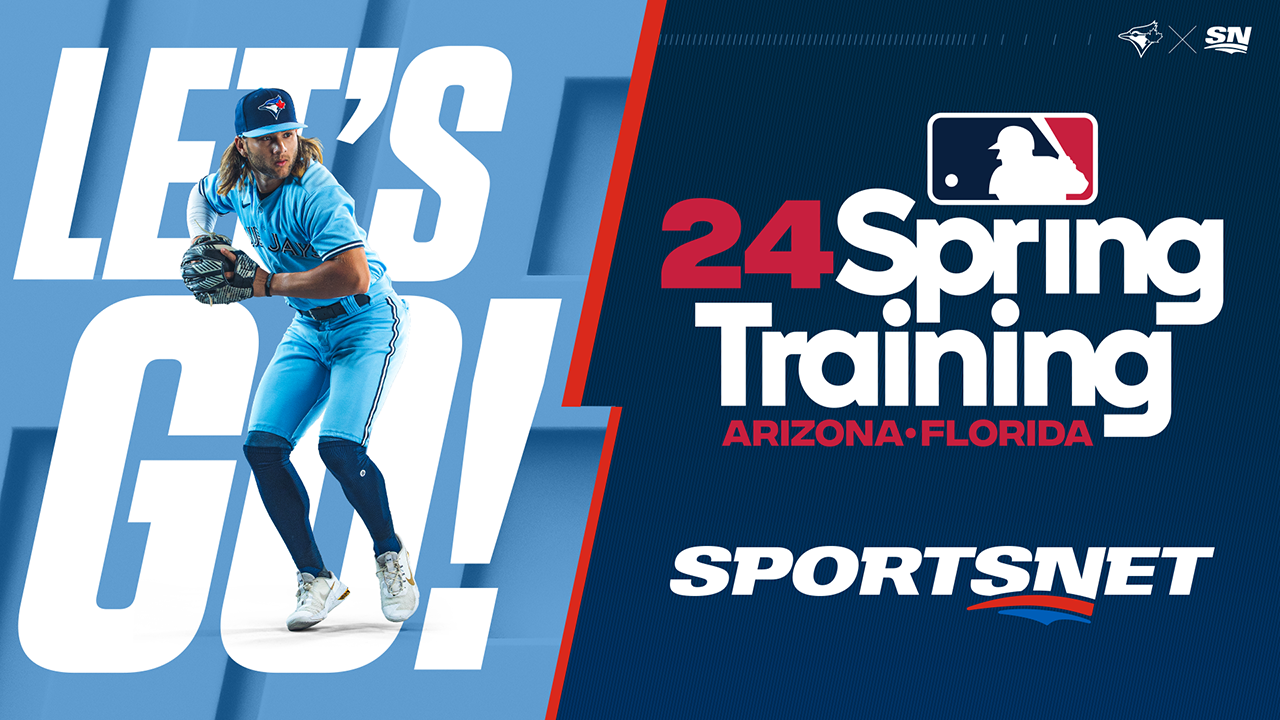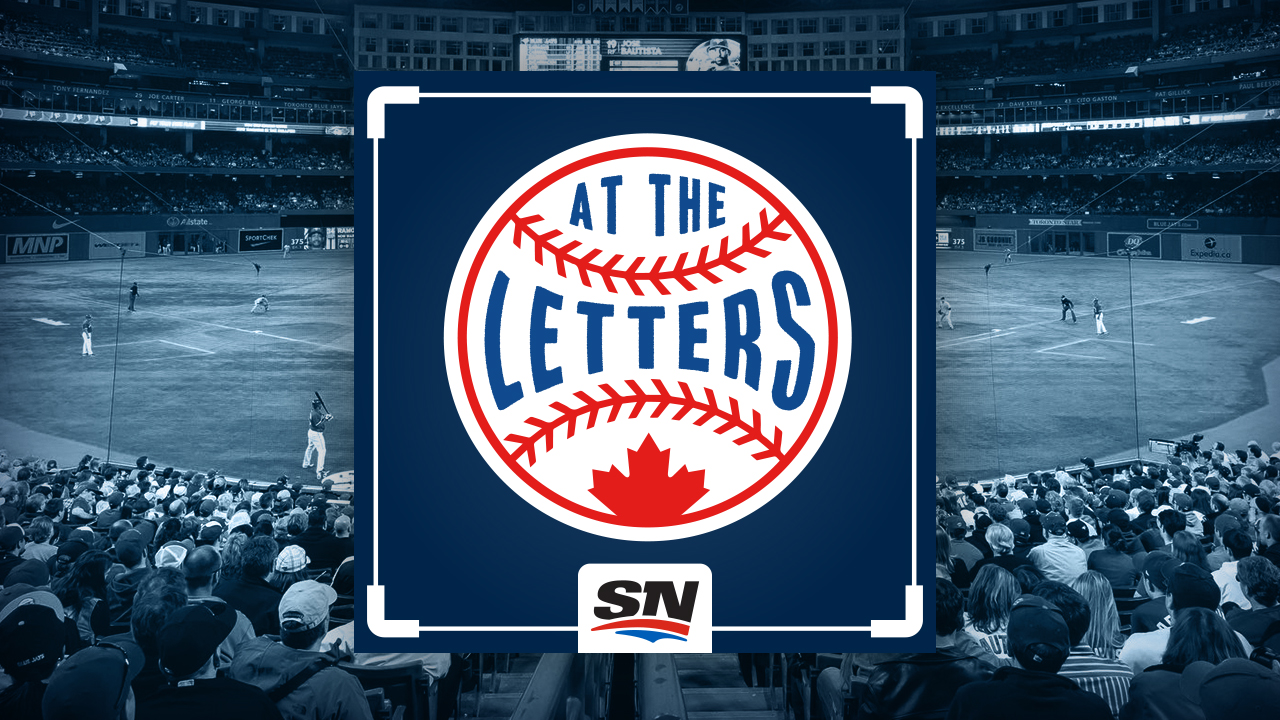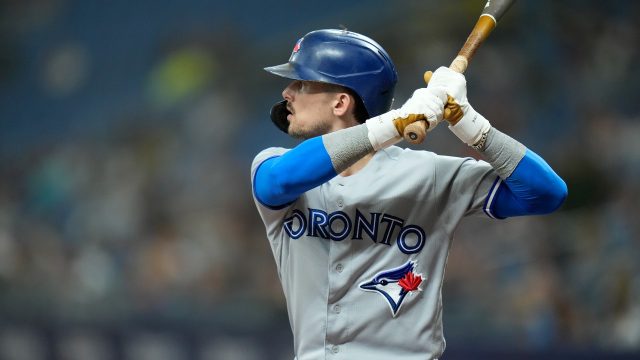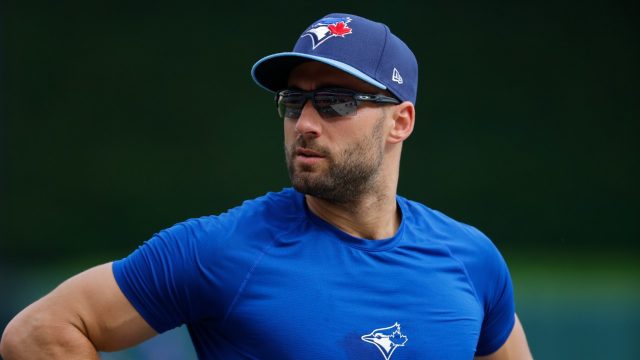
DUNEDIN, Fla. — Danny Jansen’s recovery timeline from a fractured right pisiform — a knobbly, pea-shaped bone in his wrist that bore the brunt of a 93-m.p.h. fastball last Wednesday — is better than it could have been. The Toronto Blue Jays are estimating it should only be a couple weeks before he’s ready to resume baseball activity.
But in the meantime, that’s created an opening on Toronto’s 26-man roster for a secondary catcher to pair with Alejandro Kirk, who will play a lot on the club’s season-opening, 10-game road trip but can’t be asked to catch every day.
With apologies to Max McDowell, whose playing time this spring (11 plate appearances) is reflective of his distant third position in this conversation, the primary candidates to claim that spot are Brian Serven and Payton Henry, a pair of 26-year-olds the Blue Jays acquired this off-season as upper-minors catching depth.
You can think of Serven as more glove than bat, and Henry as more bat than glove, although both have made recent strides in the latter half of those equations. Serven has had a slight edge on Henry as the club’s third catcher throughout spring and would likely claim the role if camp broke today. But neither is currently on the Blue Jays 40-man roster, and until one is they’re both in the running.
Minor-league optionality isn’t a concern as both have a pair remaining; neither is experience with the unique demands of a big-league environment as both have spent extended stretches in the majors over the last three seasons.
This will ultimately come down to which catcher the Blue Jays feel is the best defensive fit with their pitching staff and gives them an advantageous offensive matchup on the days they’ll try to get Kirk off his feet. So, let’s take a closer look at how Serven and Henry got here, and what they could bring to the Blue Jays.
***
Brian Serven
Crazy Brian Serven story. After a half-dozen seasons grinding his way up the Colorado Rockies minor-league system, Serven finally earned a big-league call-up in mid-May 2022 and, a day later, was in the Rockies starting lineup. Naturally, his family scrambled to Denver to see it live.
Stepping into the batter’s box for his first MLB plate appearance, Serven toe-tapped and took a huge cut at the first pitch he saw, fouling it off towards Coors Field’s first-base side where it landed directly into the pocket of seats his family was watching from.
“It’s a little questionable as to whether they caught it on a line or if someone had to go get it — depends who’s telling the story,” Serven says. “But we’ll go with they caught it. Yeah, my brother caught it one-handed. Unbelievable grab. Tossed it to my dad, they chugged a beer. And the rest is history.”
There’s no questioning what Serven did three days later when he got his next start and came away with the first two hits of his big-league career — both long, two-run homers into the left-field seats. He remains the only player in MLB history to notch his first two career hits with multi-run homers in the same game.
“And the first one was off a guy I’ve known for a while, Trevor Williams. He went to ASU,” says Serven, who played three seasons at Arizona State University. “He sent me over a little gift the next day and was like, ‘Hey, congrats. Never want to give up a homer. But at least it’s to a Sun Devil.’”
Tough to imagine many players with more serendipitous starts to their careers than that. But Serven would no doubt settle for a little less storybook and a little more consistency going forward.
He remained with the Rockies for the rest of 2022, but he slumped significantly in the second half and saw his playing time whittle away during the stretch run. Serven began 2023 back with the Rockies but was demoted in early May and spent the rest of his year at triple-A — outside a four-day recall in mid-June when he didn’t make a plate appearance — playing through a hernia that sent him to the injured list on multiple occasions.
He hit waivers this winter, rode the DFA carousel through Chicago to Toronto, and was quietly outrighted off the Blue Jays roster on the eve of spring training. The Blue Jays were surprised Serven passed through waivers considering his solid defensive reputation and two remaining minor-league options. But it’s a welcome turn of fate in the wake of Jansen’s injury, as Serven has been leading the spring training competition with Henry to be the club’s third catcher.
Toronto’s internal defensive metrics rate Serven highly and see him capable of producing positive WAR based on his glovework alone. And public ones support that confidence. Serven posted five DRS during his most substantial MLB sample in 2022, ranking within the league’s top-10 catchers in both Baseball Savant’s and Fangraphs’ framing metrics.
Receiving is an area of Serven’s game that has developed rapidly since college, a process he credits former Rockies catching coordinator Mark Strittmatter — now on the Cubs big-league staff — for helping facilitate.
“I came into pro baseball not very good at it, to be honest,” Serven says. “And it was one of the biggest things Mark harped on from the moment I got drafted. And it’s just gotten better and better and better. It’s really important to me — I try to do that as well as I can. Because helping the pitcher go from an 0-0 to an 0-1, or a 1-1 to a 1-2, makes a huge difference.”
Serven has also demonstrated an ability to make loud contact and carries the highest average exit velocity — 97.3 m.p.h. — of any Blue Jay to put at least 10 tracked balls in play this spring. Thursday, he hit a 437-foot homer off Bailey Ober that left his bat at 108.3 m.p.h. So far this spring, Serven’s already hit two balls harder than the 106 m.p.h. regular-season maximum he set in 2022.
These are satisfying results after Serven poured hours of work into his swing path over the winter. For the first time in his career, Serven sought outside guidance from a private hitting coach: Craig Wallenbrock, who was at the forefront of baseball’s launch angle revolution and famously helped J.D. Martinez unlock himself at the plate in 2014.
Serven brought what he’d worked on to Toronto’s hitting coaches this spring, and collectively they furthered the process to help him continue understanding how to better control his bat path and avoid groundball contact.
“I tend to get really shoulder rotational,” Serven says. “I’m trying to be more linear, more underneath my shoulders instead of across my shoulders. That was the big change. And so far, that’s helped me get the ball in the air a little bit better and keep a cleaner line to the ball.”
Serven’s biggest challenge this spring has been learning Toronto’s pitching staff. The only Blue Jays he knew entering the organization were Andrew Bash, an old high school teammate, and Fitz Stadler, who he played with at ASU — two pitchers he could catch this season at triple-A but who aren’t likely to factor into the big-league picture.
Toronto’s internal scouting reports and profiles of their own pitchers have helped Serven pick up the preferences of his many new battery-mates as quickly as he can. But now that he’s positioned to break camp with the Blue Jays, that process is about to kick into overdrive.
“So far, so good. I’ve gotten good feedback from the guys I’ve caught,” he says. “One day during bullpens early in camp, I caught four guys I’ve never caught before. So, that’s not always the easiest — not knowing their stuff, where they miss, what they like to do.
“It was daunting at first. You come in to a new team, you want to make a good first impression. There were moments of nerves and anxiety. But it’s been fun. It’s a fun challenge. It’s what we do. We’re competitors. We get in there and compete.”
•••
Payton Henry
Like Serven, Henry took the long road to the majors, stopping at each rung of the Milwaukee Brewers minor-league ladder — earning a couple all-star nods and a gold glove along the way — before being traded to the Miami Marlins and finally breaking through as a September call-up in 2021. He made Miami’s opening day roster to begin the 2022 season, but was optioned in late May, missed substantial time following thumb surgery, and was traded back to the Brewers that winter.
After spending all of 2023 at triple-A and hitting a respectable .294/.341/.454 — somehow good for only a 98 wRC+ in the International League’s inflated offensive environment — Henry became a minor-league free agent. He quickly heard from several teams offering non-roster deals for 2024. But the interest the Blue Jays showed in him stood out.
“They made it apparent that they really liked the way I played,” Henry says. “And they were very straightforward in telling me the opportunity they could offer and what their plan was. They were really open about what they felt I did well and the areas where they felt they could help make me a better player. I really liked that. I know a lot of guys who are out of jobs; a lot of good players who don’t have an opportunity. So, I’m glad I was able to get one.”
What the Blue Jays like about Henry starts with his considerable raw power, which was a calling card as a prospect in the Brewers system. Henry was raised in a wrestling family — his grandfather, Darold, was elected to the National Wrestling Hall of Fame three times as a wrestler, coach and referee — that had him strength training and developing body control from a young age. In his second big-league plate appearance, he crushed a double 402 feet to deep centre that came off his bat at 108.6 m.p.h.
But presenting that power consistently in games has been an issue. He’s worked hard to trim his strikeout and groundball rates as he’s advanced through the minors and although opportunities were inconsistent as part of a three-way playing time split behind the plate with the Nashville Sounds last season, Henry still came up with 20 extra-base hits in just 65 games.
“Last year was the first year where my approach and mechanics really started linking up,” Henry says. “So, I’ve been elaborating more on that here with the Blue Jays — it’s been great getting it locked in further.”
Defensively, Henry has been a work in progress throughout his career but has shaken an early, post-draft reputation as a bat-only prospect who would eventually need to move out from behind the plate. His plus throwing arm has never been in question, but his receiving and blocking have been inconsistent season-to-season. This winter, he adjusted his training to reemphasize flexibility and movement, trying to get back to the routines that helped him take large developmental strides earlier in his minor-league career.
“A couple of years ago in double-A, I had really good receiving numbers. And after that, I got away from some of the things I was doing,” Henry says. “So, I’ve worked really hard on getting more athletic and being able to move a little bit better. And so far this camp, I’ve been able to feel some of the things that I had previously.
“The receiving aspect is so big in baseball. I think that’s something I’ll hone in on for the rest of my career, to be completely honest with you.”
Of course, his biggest focus this spring has been getting on the same page with the 34 pitchers the Blue Jays brought to major-league spring training, plus the rotating cast of minor-leaguers who filter over from the other side of camp to make late-game appearances. Echoing Serven, Henry has been thankful for the resources Toronto’s coaching staff has provided on the different movement profiles pitchers feature and how they like their catchers to set up targets.
Yet, the one pitcher he didn’t need a scouting report on was Bowden Francis. Henry came up through Milwaukee’s system with the stoic right-hander who’s emerged as an important rotation backfill this spring, watching Francis light sage around A-ball clubhouses and walk barefoot into centre field on start days to meditate in the sun.
“Oh, yeah — he’s always been that guy,” Henry says. “I’ve honestly learned a lot from the intent he brings into every bullpen, every game. Nothing rattles Bowden. That’s huge as a pitcher. I think everybody can learn something from that. Especially me. You need to be locked in as a catcher, take the emotion out of it, and just go get the job done.”
With only 51 plate appearances and 128.2 defensive innings on his big-league resume, Henry trails Serven in high-level experience and is currently a tick behind in the competition to fill Jansen’s spot on the opening day roster. But that doesn’t mean a big-league opportunity won’t come in 2024.
It’s a long season. Things happen. Catchers get hurt. The Blue Jays started five different catchers in 2022, and four in each of the four seasons prior. If Henry is fourth on the depth chart — third with Jansen unavailable — he’s positioned to help the Blue Jays at some point over the next six months. And when the call comes, he’ll be ready.
“From talking to them this winter, it was apparent the Blue Jays were a really good fit for me. And that’s been true since I’ve been here. A very positive atmosphere. A lot of good guys around the clubhouse; a lot of veterans I’ve been talking with and approaching to try to get better from,” Henry says. “Being in a bit of a different role last year really helped me understand how to play less and still be able to make an impact. I think I got really good at making do with what I had. So, I’m hoping to bring that here. All I need is an opportunity.”








